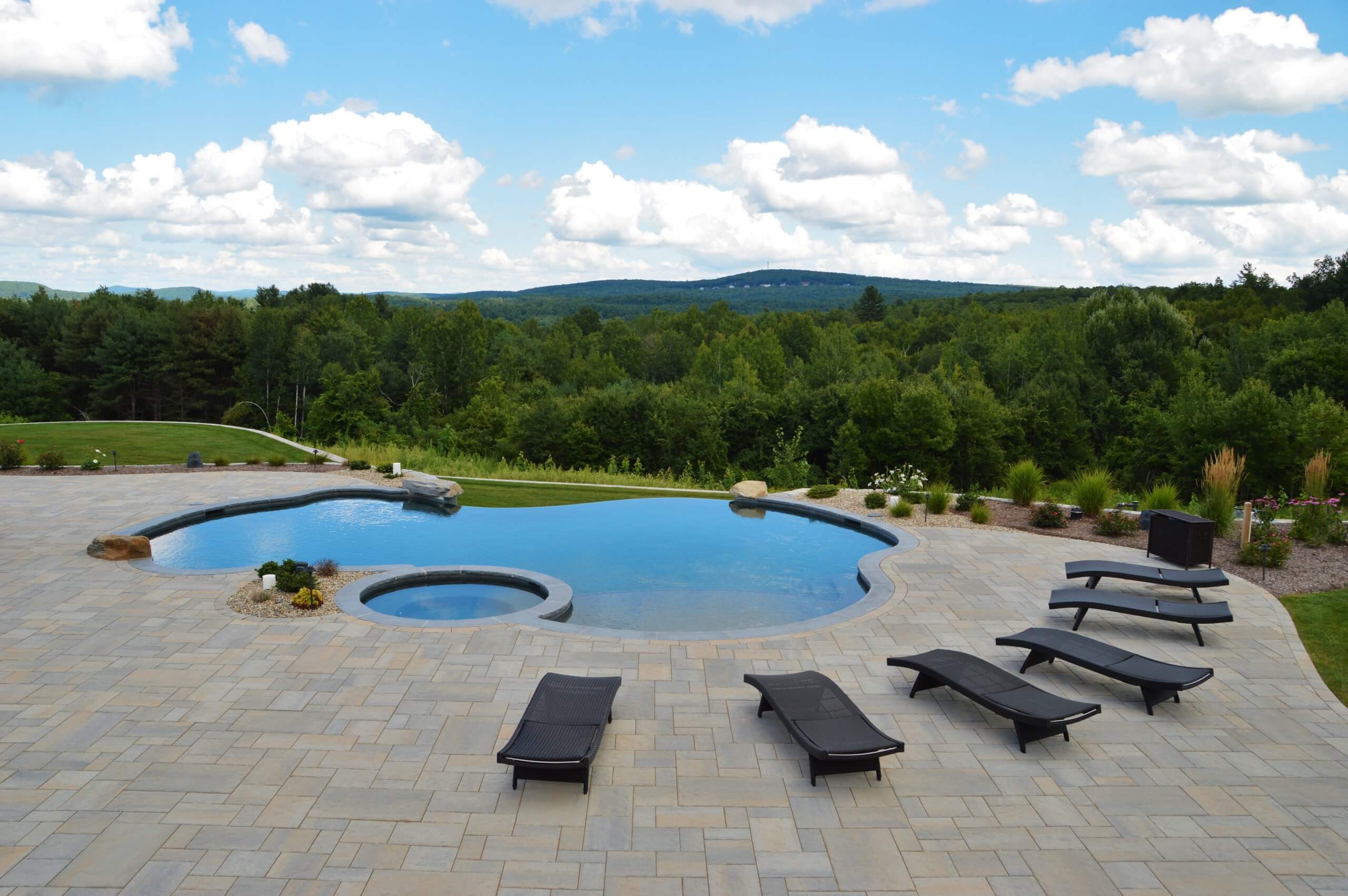Shotcrete vs. Gunite: What’s the Difference?
When it comes to adding a custom-built swimming pool to your property, you may encounter two specific terms referring to methods of construction: shotcrete and gunite. While these terms are sometimes used interchangeably, there are a few subtle differences between them, with each process offering its own characteristics and benefits.
If you’re considering different options for pool construction, here’s what you should know about shotcrete vs. gunite.
Similarities and differences between shotcrete and gunite pools:
Both shotcrete and gunite are pneumatically applied mixtures of cement, sand, water, and a coarse aggregate, which consists of small particles such as gravel or crushed stones. These mixtures are then shot out of a hose at high velocity onto a receiving surface; in the case of pools, this is typically a steel rebar skeleton that provides solid structural support.
The difference between shotcrete and gunite is the point at which the concrete blend combines with the water. Gunite involves mixing dry cement, sand, and aggregate, which are then pumped through a hose to the application nozzle. Water is added at the nozzle, resulting in a wet mixture upon impact with the surface. The skilled technician operating the hose can control the amount of water added to the mixture as needed to achieve the desired consistency.
In contrast, shotcrete utilizes a “wet mix” in which the cement, sand, aggregate, and water are already combined and sprayed through the hose as one cohesive material.
Advantages of gunite vs. shotcrete:
While both the gunite and shotcrete construction methods can result in beautiful, long-lasting swimming pools, gunite remains the more popular option due to a few compelling advantages. For instance:
- More customizable. While shotcrete is generally applied all at once (which is essential because otherwise, “cold joints” may occur in the concrete, leading to an uneven surface and potential cracking), gunite allows the technicians greater flexibility to pause the application process and adjust as needed. This translates to more opportunities to customize the design of your pool to your exact specifications.
- Due to the higher degree of control the technicians have when applying gunite, there tend to be fewer errors in the construction process, resulting in a durable pool that will withstand the test of time. In fact, gunite pools that are properly built and maintained should last for 100 years or more, thereby delivering a lifetime of enjoyment.
- Less expensive. While both gunite and shotcrete pools generally carry a higher upfront cost than their vinyl or fiberglass counterparts (however, their superior durability means a stronger return on investment over time), gunite pools tend to be less expensive than shotcrete.
One factor that may potentially be considered a drawback of gunite pools is that they require a higher level of skill from the technicians who are applying the concrete mixture. At Aqua Pool & Patio, we have over 50 continuous years of experience designing and building custom gunite pools, giving us the skill and expertise needed to create a beautiful, long-lasting pool that reflects your unique vision. Call us today at (860) 623-9886 to learn more about the benefits of gunite pools or to start planning your project!




